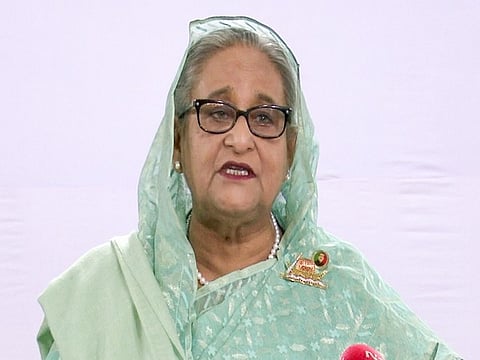Bangladesh history closes a dark loop with case on Hasina
The formal indictment of former Prime Minister Sheikh Hasina for crimes against humanity marks a pivotal moment in Bangladesh’s turbulent history. The prosecutors accuse her of ordering brutal crackdowns during the 2024 student uprising, causing mass casualties and widespread abuse. Backed by encrypted communications, damning videos and testimony from 81 witnesses, the evidence paints a chilling portrait of a leader long accused of wielding unchecked power in Bangladesh’s chequered political landscape. But justice, if it is to be substantive, must stop short of vengeance. What should have been a legal reckoning for a leader’s abuses has mutated into a wholesale political purge. The interim government led by Nobel laureate Muhammad Yunus has not only charged Hasina, but banned the Awami League—the party that led Bangladesh to independence—from political activity altogether.
History is coming full circle for the nation, but in a grotesque form. The Awami League, banned by the Pakistani regime in 1971 for demanding autonomy, now finds itself outlawed by its own country in the name of democracy. The symbolism is stark and troubling. Yunus, once hailed as a visionary of social empowerment, now presides over an unelected regime that risks becoming a mirrored image of the autocracy it claimed to replace. His decision to reinstate Jamaat-e-Islami, a party complicit in the 1971 genocide, while erasing the Awami League, reeks of opportunism masquerading as reform. This is not transitional justice—it is selective amnesia, if not outright political vendetta.
If Hasina must be held to account, let the law take its course. But dismantling an entire party—one with deep roots in Bangladesh’s political consciousness—sets a precedent that undermines the very democracy Yunus claims to uphold. Reform cannot be built on erasure. Institutions must evolve, not be extinguished. India must tread carefully in these troubled waters. While Hasina’s authoritarian turn is undeniable, she also helped anchor crucial ties with New Delhi. The Yunus regime, which leans increasingly toward Pakistan and China while whipping up anti-India sentiment, threatens the region’s hard-won stability. Bangladesh faces a stark choice: renewal through inclusive, representative politics, or regression into a cleansed, hollowed-out democracy. As history loops back on itself, the country must ask: is it correcting the past, or repeating its darkest patterns in a new guise?

